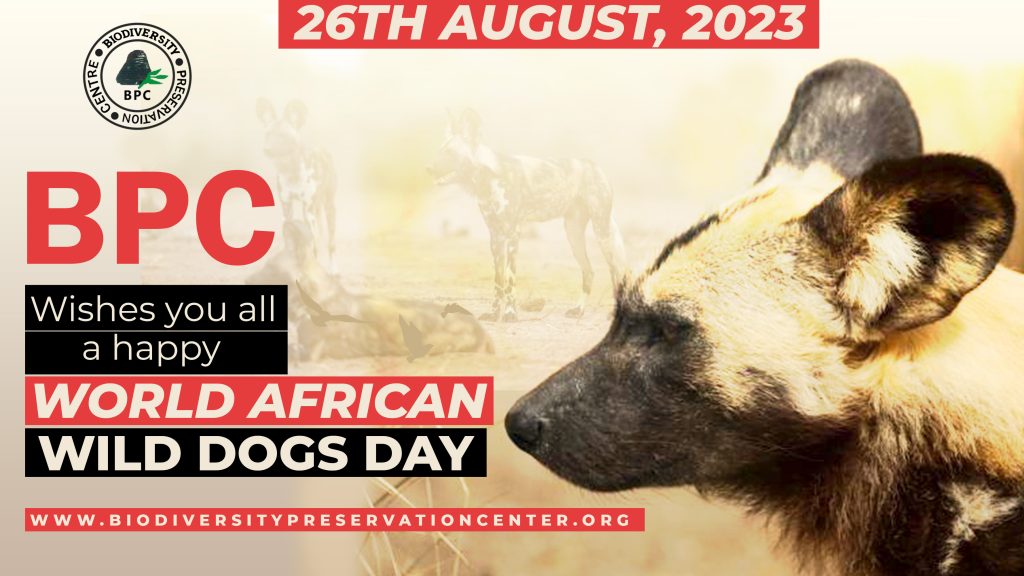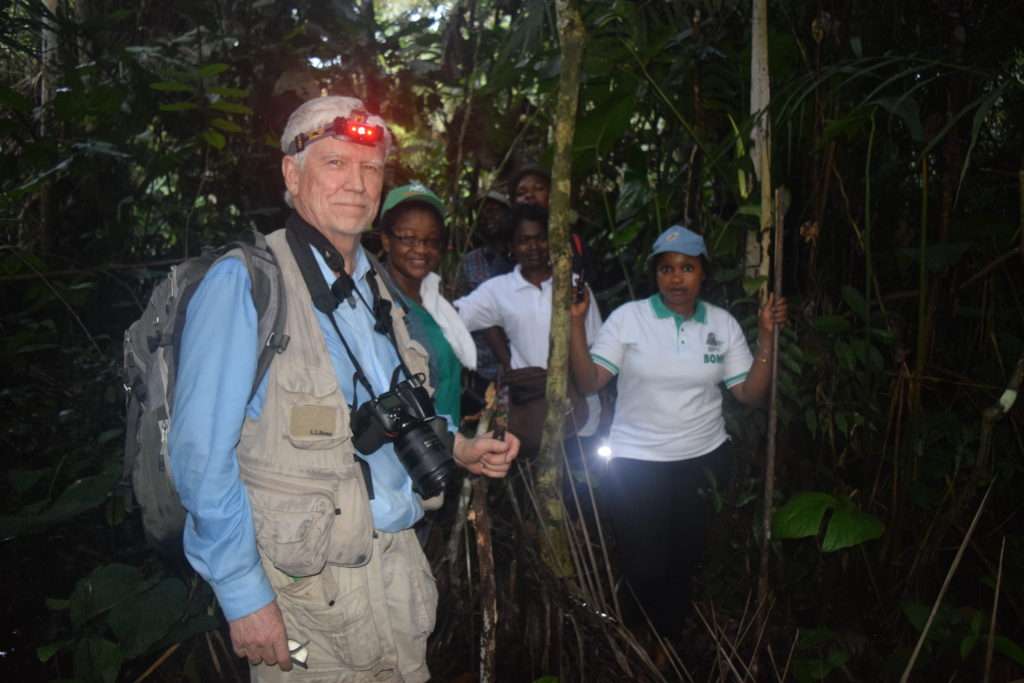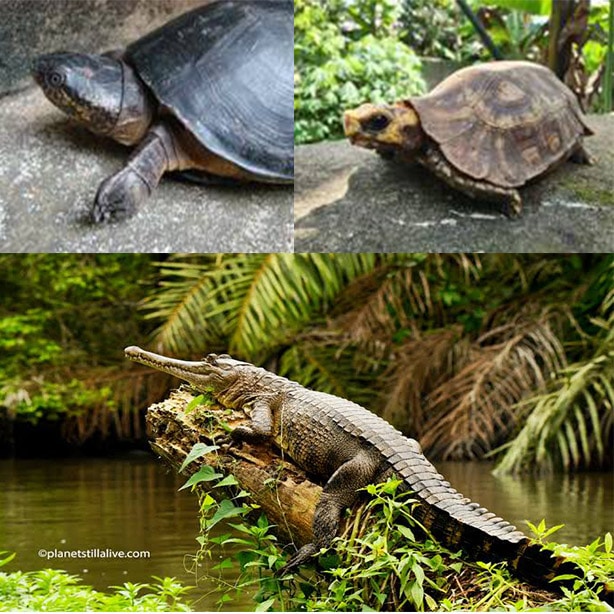World African Wild Dog Day is a day dedicated to raising awareness about one of Africa’s most fascinating yet critically endangered species – the African wild dog, also known as the African painted dog or Cape hunting dog.
The Distinctive Features of African Wild Dogs
Due to their remarkable coat patterns, which resemble a painter’s canvas, African wild dogs are easily distinguished from other canines. Their striking appearance is influenced by their lithe bodies and wide, rounded ears. Living in packs of up to 30 individuals, they are very social animals who display amazing coordinated hunting behaviour.
Ecological Importance of African Wild Dogs
The balance of the ecology is crucially maintained by these predators (African wild dogs). As excellent hunters, they aid in regulating the populations of their prey (such as the Impalas, Thomson’s Gazelles, and Warthogs,etc.), which has an impact on vegetation and prevents overgrazing. They shape the dynamics of other creatures’ habitats by influencing their behaviour.
Conservation Challenges
Despite being vital to the ecosystem, African wild dogs are constantly in danger. Habitat loss caused by human activities such as agriculture and urbanization is a serious problem. They are also susceptible to conditions like canine distemper and habitat fragmentation, which makes it difficult for them to find suitable mates and territories.
Conservation Efforts
It’s so unfortunate to say that African Wild Dog is locally extinct in Nigeria 🥲. According to Roosie Woodroffe, Joshua Ginsberg and David Macdonald, (Status Survey and Conservation Action Plan – The African Wild Dog pg-135) by the status of the African Wild Dog in Nigeria is stated as “possibly extinct”. While Nigeria may have lost her Wild Dogs populations, We still have Mongrels, a local dog breed commonly known as “nkita” or “Ekuke” that lives in the streets and out neighbourhood. In a world brimming with remarkable and unique animals, it’s easy to overlook the extraordinary mongrels that share our lives and ecosystems. While we often focus on the foreign and exotic breeds of dogs like the German shepherd, bulldogs, mastiffs, etc. let’s take a moment to shine a spotlight on the unsung heroes of canine diversity right here in Nigeria. These local mongrels, often underestimated and misunderstood, play a crucial role in our ecosystem and cultural landscape.
Mongrels in Nigeria come in a wide variety of features, temperaments, and appearances, just like every individual is unique. These mongrels, from the scruffy street canines to the mixed-breed pets in our homes, are a living example of how a combination of their genes and history has shaped them over generations.
The Role of Mongrels in Ecosystem Health
While the concept of conservation often revolves around protecting rare and endangered species, the role of mongrels in maintaining a healthy ecosystem must not be underestimated. These dogs contribute to controlling rodent populations, scavenging waste, and even influencing the behavior of wildlife in urban areas.
Cultural Significance and Heritage:
Mongrels have been part of Nigeria’s cultural fabric for centuries. They have adapted to their surroundings, often embodying the spirit of resilience and adaptability that characterizes Nigerian communities. We may celebrate our distinctive cultural heritage and promote a sense of harmony with the natural world around us by accepting and protecting these local mongrels.
Challenges and Conservation Efforts
Despite their importance, the Nigerian mongrels are currently threatened by the following factors;
- Gene Pollution: The mongrels of Nigeria is currently threaten by indiscriminate gene pollution, where the people who have the penchant for foreign things, have gone out of their way to bring all types of dog breeds without even tracing and crossbreed them, this has brought a threat to the original gene of the Nigerian mongrel and of allowed to continue without government regulations, we may soon loose the original progeny of the mongrels.
- Dog meat consumption: Consumption of Dog Meat: A growing demand for dog meat has emerged in regions such as Enugu, Akwa-Ibom, Cross River, Plateau State, and others, elevating dog meat to the status of a delicacy in Nigeria.
- Poor Economy: The hardship and high level of poverty has lead much more people to consume these dogs as a source of protein.Disease Vulnerability: The prevalence of diseases like rabies has made it even more difficult for mongrels to survive in many parts of Nigeria.
- Utilization as Hunting Dogs: In many localities within Nigeria, these mongrels are trained to serve as hunting dogs. Unfortunately, this role has proven detrimental to the survival of Nigerian primates. Hunting dogs have served as an effective way for hunters to kill the last remaining endangered animals in Nigeria. Addressing these negative trends demands stringent measures and control from Nigerian authorities.
In conclusion, While African wild dog populations may have diminished in Nigeria, the mongrels that grace our neighborhoods and lives stand strong as a symbol of resilience and adaptability. By valuing and protecting these mongrels, we’re not only preserving our environment and culture but also paying homage to the spirit of survival that defines both our canine companions and our nation.
REFERENCES:
- Dnbstories. (2021, May 17). All about the Nigerian local dog breeds called Ekuke or bingo. DNB Stories Africa. Retrieved April 18, 2023, from https://dnbstories.com/2018/09/nigerian-local-dog-breeds-called-ekuke-or-bingo.html
- Woodroffe, Ginsberg and Macdonald (n. d). Status Survey and Conservation Action Plan – The African Wild Dog.



